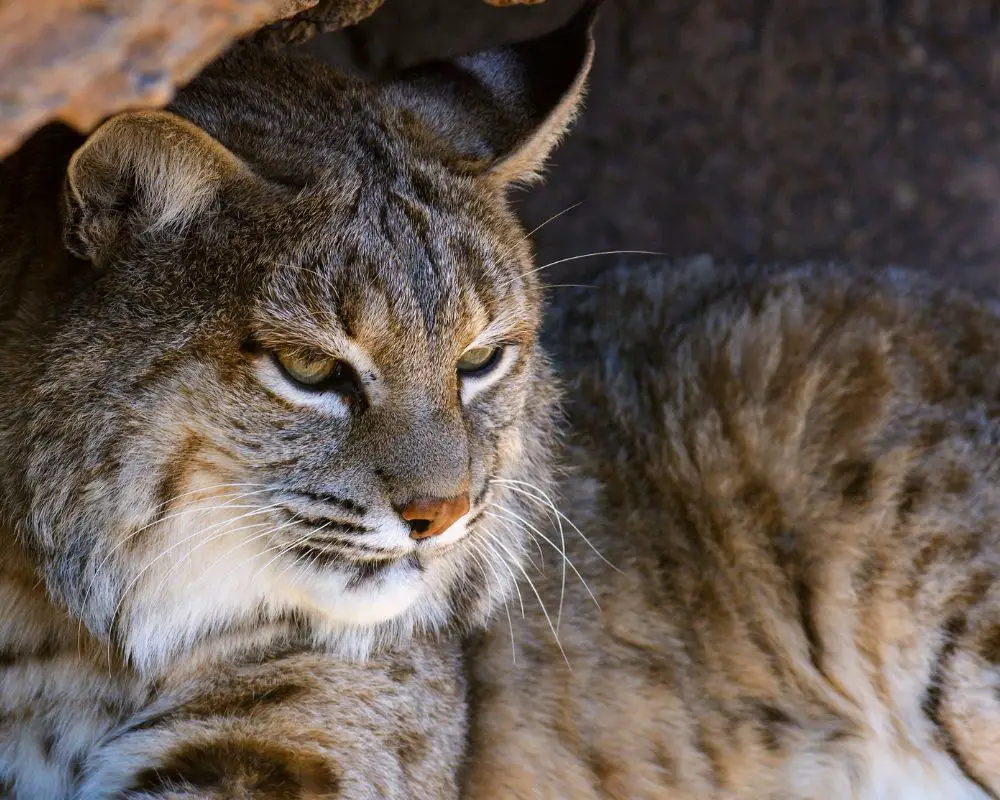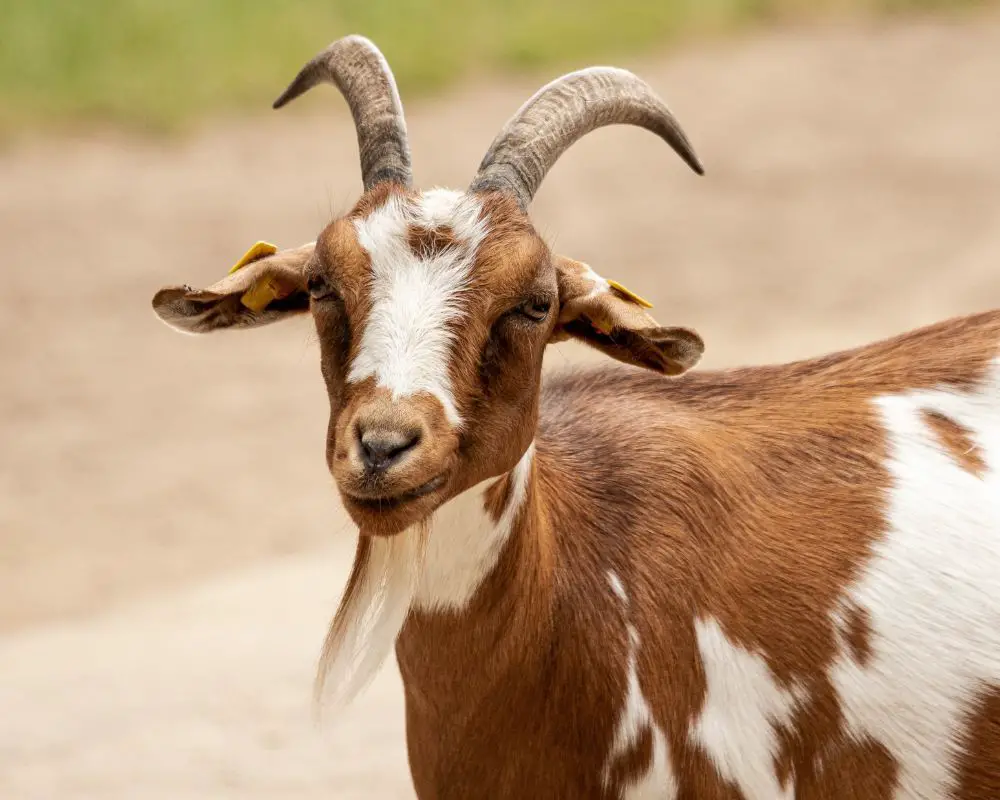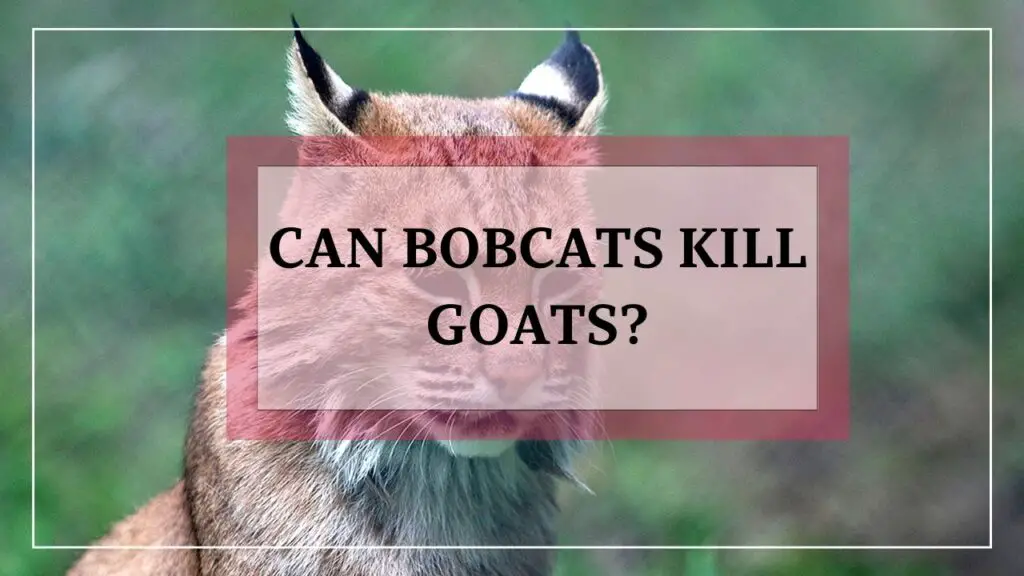Bobcats are a common sight in many areas of North America and are known for their agility, stealth, and hunting skills. While they are generally shy and elusive animals, bobcats can pose a potential threat to livestock, including goats. In this blog post, we’ll explore the topic of bobcats and goats, answering the question “Can bobcats kill goats?” and discussing the factors that influence bobcat-goat encounters.
As a goat owner, it’s important to understand the potential risks to your livestock and take proactive steps to protect them. This post will provide valuable information and practical tips to help you keep your goats safe from bobcats. Whether you’re a seasoned goat farmer or new to raising goats, this post will provide a helpful and comprehensive guide to this important topic.
Can Bobcats Kill Goats?


Explanation Of Bobcat Hunting Behavior
Bobcats are skilled hunters and are capable of taking down prey much larger than themselves. They are known to hunt a variety of small to medium-sized mammals, including rabbits, squirrels, and even deer, as well as birds, reptiles, and fish. However, when food is scarce or other prey is not available, bobcats may turn to livestock, including goats, as a source of food.
Discussion Of The Size And Strength Of Bobcats Compared To Goats
In terms of size and strength, bobcats are significantly smaller than goats and would likely struggle to take down a healthy adult goat. However, bobcats are known for their quick and powerful strikes, and they can kill smaller or weaker goats with ease. Additionally, bobcats are known to be opportunistic hunters, and they may attack goats that are sick, injured, or otherwise vulnerable.
Examination Of Reported Cases Of Bobcats Killing Goats
While the number of reported bobcat attacks on goats is relatively low, it’s important to take precautions to protect your goats, especially if you live in an area where bobcats are known to be present. In some cases, bobcats may kill multiple goats in a single attack, so the impact of a bobcat attack can be significant.
To determine the likelihood of bobcats killing goats in a given area, it’s important to consider the presence of other prey, the agricultural practices in the area, and the availability of natural habitat for bobcats. These factors can influence the behavior of bobcats and determine whether they view goats as potential prey.
Factors that Influence Bobcat-Goat Encounters
Availability Of Other Prey In The Area
Bobcats are opportunistic hunters and will typically hunt the easiest prey available to them. If there is an abundance of other prey in the area, such as rabbits or squirrels, bobcats are less likely to target goats. However, if food is scarce, bobcats may be more likely to hunt goats as a source of food.
Agricultural Practices And Goat Population Density
Agricultural practices, such as clearing forests and creating pastures, can bring bobcats and goats into closer proximity, increasing the chances of a bobcat-goat encounter. Additionally, the higher the goat population density in an area, the more likely it is that bobcats will view goats as a potential source of food.
Availability Of Natural Habitat For Bobcats
Bobcats require a certain amount of natural habitat to survive, including forests, brush, and rocky outcroppings. When natural habitat is scarce, bobcats may be forced to venture into agricultural areas in search of food, increasing the chances of bobcat-goat encounters.
By understanding the factors that influence bobcat-goat encounters, goat owners can make informed decisions about how to protect their livestock. The next section of this blog post will provide practical tips and strategies for protecting your goats from bobcats.
Protecting Your Goats from Bobcats
Here are some tips that may inspire you to protect your goats from Bobcats:
- Provide secure housing: Ensure that your goat barn or pen is secure and has sturdy walls, a solid roof, and a secure door. Consider using wire mesh or hardware cloth to reinforce the walls and prevent bobcats from entering.
- Keep goats in groups: Goats are social animals and feel safer when they are in a group. Keeping your goats in a herd can help deter bobcats from attacking, as bobcats are less likely to take on a group of goats than a single goat.
- Supervise goats during daylight hours: While bobcats are more active at night, they may still hunt during the day. Supervising your goats during daylight hours and bringing them into secure housing at night can help protect them from bobcat attacks.
- Use protective devices: There are various protective devices available, such as alarms, motion-activated lights, and deterrent sprays, that can help scare off bobcats and protect your goats. Consider incorporating these devices into your goat protection plan
- Provide adequate food and water: Keeping your goats well-fed and hydrated can help keep them healthy and less vulnerable to bobcat attacks. Make sure to provide adequate food and water, especially during times of scarcity when bobcats may be more likely to hunt goats.
- Remove attractants: Remove any potential attractants, such as piles of food waste or fallen fruit, that may attract bobcats to your property. This can help reduce the chances of bobcat-goat encounters.[1]
The Bottom Line
In conclusion, bobcats can be a potential threat to goat livestock and it’s important for goat owners to understand the factors that influence bobcat-goat encounters. While bobcats are typically smaller and less likely to attack adult goats, they can be dangerous to smaller or vulnerable goats.
To protect your goats, it’s important to provide secure housing, keep goats in groups, supervise them during daylight hours, use protective devices, provide adequate food and water, and remove attractants that may attract bobcats. By following these tips and being vigilant, goat owners can help keep their livestock safe from bobcats and minimize the risk of a bobcat attack.

